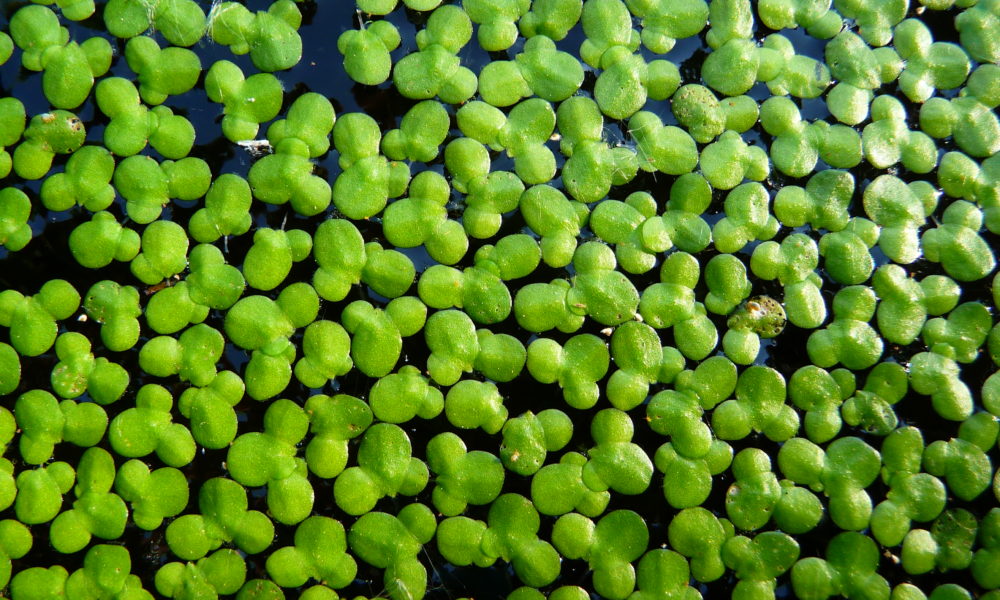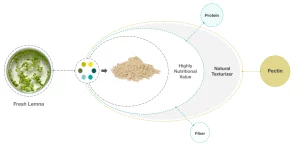
Plant-based Proteins to the Rescue!
As the world’s population grows, so does the need for proteins to ensure healthy diets. But current practices to produce protein, such as meat, poultry, fish, eggs, and dairy products, are unsustainable and harmful for the environment.
Whether red or white, meats require prodigious amounts of water to produce them, both to raise the animals to the required size for butchering and consumption and to grow the feed they eat. This also entails the use of pesticides that harm plants and animals, as well as antibiotics to keep the animals from falling ill before they become food.
Fish and seafood present similar problems due to overfishing in the wild and pollution in waterbodies, which makes them inedible. Fish farming is often no better as it faces the same problems as farms on land: waste, pesticides, antibiotics, parasites, and disease.
However, protein need not come only from animals. There are other types of this highly complex substance (which is present in all living organisms) that humans can consume to get what they need, namely in plants. These plants include soy, lentils, chickpeas, peanuts, almonds, spirulina, quinoa, leafy greens such as broccoli and kale, and even mushrooms.
But as with animal farming, plant farming can pose problems for the planet too, due to pesticides, nitrogen runoff that pollutes waterways, and the overuse of scarce water resources. Two companies, microTERRA and Proeon, have recognized these problems and others, and are striving for solutions.
Biotech company microTERRA is building a plant-based future by partnering with aquaculture farmers in Latin America to grow a water lentil called lemna in a scalable, affordable, and sustainable manner.

Water lentil schema
(Source: microTERRA)
By growing this high-protein and functional aquatic plant, the company is cleaning water while producing an ingredient for the plant-based food industry. Its vision is to create ingredients (and soon food) that help protect the environment – ingredients that clean water instead of using it.
Excessive nutrients in waterways negatively impact the environment, the people, and the economy. This functional ingredient for plant-based foods is sustainable, as the lentils grow in aquafarms, stopping nitrogen and phosphorous runoff. It is affordable, as the company exchanges services, resources, goods, and time (a sharing economy approach) to ensure expenses aren’t higher than earnings, which would drive up prices. And it is scalable, because it uses existing infrastructure, growing without needing to invest further capital in operations.
It addresses Sustainable Development Goals 2: Zero hunger, 6: Clean water and sanitation, and 14: Life below water.
The plant-based protein company Proeon is creating next-generation plant proteins with excellent flavor, smooth texture, and superior nutrition, focusing on food that is good for “people, planet, and conscience.”
![Amaranth. Source: Kurt Stüber [1], CC BY-SA 3.0 <http://creativecommons.org/licenses/by-sa/3.0/>, via Wikimedia Commons](http://www.the-good-times.org/wp-content/uploads/2022/06/Amaranthus_tricolor0-300x225.jpg)
Amaranth
(Source: Kurt Stüber, CC BY-SA 3.0, via Wikimedia Commons)
Its current focus proteins are mung beans, chickpea protein and amaranth protein. The chickpea protein isolate is used to make nutrition bars, snacks or plant-based mayonnaise, among other foods. The mung bean protein isolate is used to make plant-based cheese and butter, or egg replacements products.
Such plant-based dietary alternatives to animal proteins are better for the environment also, compared to the animal products they are designed to replace. Recent research shows that plant-based products produce lower levels of greenhouse gases, require much less agricultural land and water, and cause less pollution than animal products.
What’s more, plant-based proteins supply nutrients, fiber, and antioxidants that can improve overall human health. They provide elements for healthy muscles and tissues, and may be beneficial for weight loss as they tend to be lower in calories and fat than animal proteins. Tofu, made from condensed soy milk, is a source of plant-based protein, as is quinoa, hemp seeds, and lentils.
Thus plant-based proteins really are good for people and the planet.

